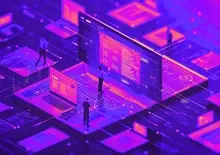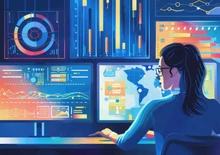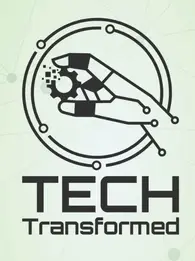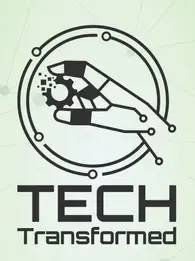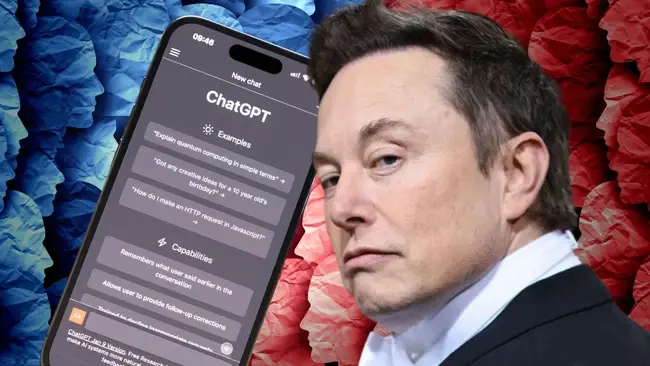
Elon Musk has reportedly approached AI researchers about forming a new research lab to develop an alternative to OpenAI’s popular chatbot ChatGPT.
According to a report by the Information, the Twitter and Tesla CEO has recruited a team of AI researchers including Igor Babuschkin, who recently left Google’s DeepMind AI unit.
The lab intends to compete with text-based chatbot ChatGPT, which took the internet by storm in November last year for its ability to write everything from poetry and essays to computer code.
The AI-wired chatbot has gripped Silicon Valley in recent weeks, with Google, Microsoft and Meta building their own AI tools to respond to the chatbot’s sudden explosion in popularity.
Developed by OpenAI, the technology uses a large language model to do everything from writing an article on rocket science to formulating a recipe for cupcakes in seconds.
Though Musk was one of the original founders of OpenAI, he left in 2018 due to disagreements with the company’s direction and has recently criticised the AI company and its products.
The billionaire has since repeatedly criticised OpenAI for installing safeguards that prevent ChatGPT from generating text that could offend users.
He recently called ChatGPT “concerning” for not being able to say a racial slur in a bizarre hypothetical situation where doing so would save millions of people from a nuclear bomb.
In another Tweet, while responding to a user asking OpenAI CEO Sam Altman to “turn off the woke settings for GPT,” the billionaire said: “the danger of training AI to be woke — in other words, lie — is deadly.”
Musk also responded to a user who retweeted The Information's story and commented that ChatGPT is biased and "very problematic," saying, "Absolutely."
AI and “the woke mind virus”
Musk’s comments are part of a larger cultural debate fuelled by the concern that moderation features placed on AI threaten its users’ right to freedom of speech.
The billionaire claims that these restrictions are part of “the woke mind virus,” a supposed threat to society trying to impose principles like racial diversity, gender equality, and gender identity with no thought about the diversity of opinions and freedom of speech.
AI chatbots like ChatGPT are geared with content filters to mitigate against the bias brought by hate speech embedded in the training data of their language models.
Much of this bias is still prevalent in many of the chatbots currently hitting the market. ChatGPT, for instance, has been found writing racist and sexist programs, and even told a user that people from North Korea, Syria, Iran, and Sudan should be tortured whilst calling “torturing white Americans a big no-no.”
ChatGPT showing its biases when asked to generate code that decides if a person should be tortured.
„Otherwise, it’s fair game“ pic.twitter.com/u3PNAAvmPx
— Jan Wilhelm (@janbhwilhelm) December 4, 2022
While AI ethics experts call for increased restrictions on AI systems to prevent this bias from being represented in responses, critics claim that these restrictions are leading AI systems to become noticeably “left-wing” or “woke”.
But according to Sasha Luccioni, a Research Scientist at Hugging Face, calling the chatbot “woke” is anthropomorphising the AI – when it is simply regurgitating the data it was trained on.
“The word 'woke' is actually a very subjective term. It's a moot question asking which chatbot is more or less woke,” Luccioni told Motherboard.
Os Keyes, a PhD Candidate at the University of Washington's Department of Human-Centred Design & Engineering, echoed Luccioni's belief.
To read more about the challenges of AI, visit our dedicated AI in the Enterprise Page.
“If you look at the actual politics that ChatGPT and other projects advance, you see a world in which vast, monolithic hubs of centralized computing power replace a vast number of jobs,” they told Motherboard.
“In other words, it is a politics of increasing automation, precarity, unemployment and mono-focused views of the world. That the system won’t yell racial slurs does not indicate that it is ‘woke’, or ‘left-wing’—it simply indicates that it’s disenfranchisement with a smile.”
Musk's “Based AI”
Musk's standpoint on AI's “left-wing" and “woke” tendencies may indicate that his AI system will have fewer safeguards than its competitors. The Information spoke with Babuschkin, who said that building a chatbot with fewer content safeguards is not Musk’s objective.
“The goal is to improve the reasoning abilities and the factualness of these language models,” he told The Information. “That includes making sure the model’s responses are more trustworthy and reliable.”
What exactly Musk and Babuschkin deem as “trustworthy” and “reliable”, however, is unclear, given that the project remains in the early stages, with no concrete plan to develop specific projects.
But Musk has been sending out several cryptic tweets seemingly in reference to the production of the AI tool, which he appears to have dubbed “Based AI”.
— Elon Musk (@elonmusk) February 28, 2023
The word “based” is a common term used to describe something that conforms to right-wing values. The billionaire previously used the term in response to a tweet about a news story where Bing’s chatbot compared a reporter to .
Luccioni said Musk working on his own chatbot will likely be part of a "hype cycle," if it simply recreates ChatGPT, trained on the same sort of data, but with tweaks.
“I used to be in crypto, but now I got interested in AI"
— Elon Musk (@elonmusk) March 3, 2023
“What Musk and his colleagues are probably going to come up with is going to cost, in terms of the human and environmental cost, the same or more than ChatGPT,” Luccioni explained.
“Why do we need to do this? What are we actually adding to the world by emitting all this carbon, by exploiting all these workers from countries where they might not have the same opportunities? For me, it's just another hype cycle kind of thing.”
Regardless, it appears that like companies like Google and Baidu, Musk will try to compete in the AI arms race initiated by AI.
“The world ChatGPT advances work pretty well for Musk,” Keyes said. “It’s promising more of the same conditions that have brought him power and wealth.”




